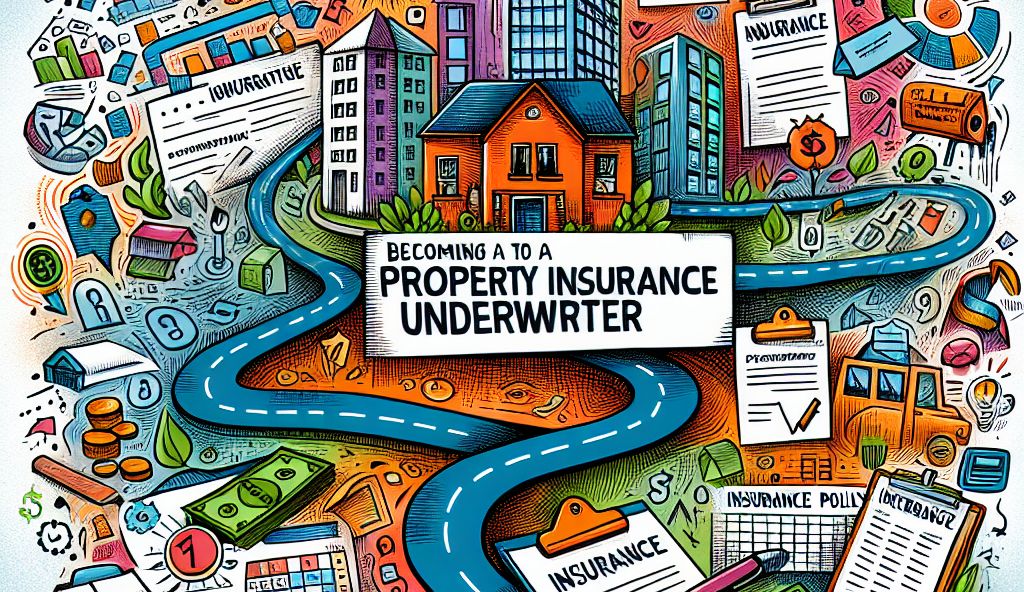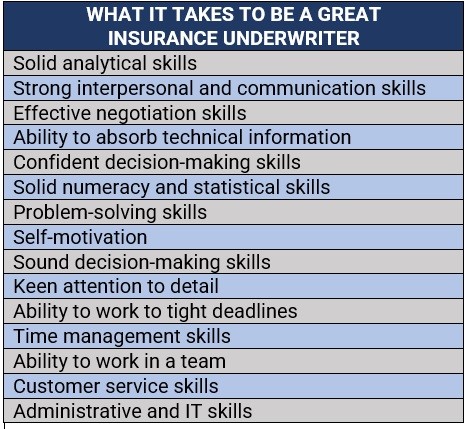To get started as an insurance underwriter, obtain a bachelor’s degree in finance, business, or a related field. Consider gaining relevant experience through internships or entry-level positions in the insurance industry. Familiarize yourself with underwriting guidelines, risk assessment techniques, & policy terms. Pursuing professional certifications, such as those offered by the Insurance Institute of America, can enhance your credentials. Networking with industry professionals & staying updated on market trends will also bolster your career prospects as you advance in this field.
how to get started as an insurance underwriter. Looking to kickstart your career? Learn how to get started as an insurance underwriter with our easy guide! Discover tips, skills, & steps to succeed!

Understanding Insurance Underwriting
Insurance underwriting plays a pivotal role in assessing risks & determining premium rates. Underwriters analyze applications while evaluating risk profiles associated with individuals or entities applying for coverage. This ensures insurance companies maintain profitability while protecting their interests.
As an aspiring insurance underwriter, grasping fundamental concepts becomes essential. Familiarizing yourself with various types of insurance products, regulations, & industry trends equips individuals with knowledge necessary for a successful career. And another thing, understanding how underwriters make decisions strengthens one’s skills in this field.
My journey as an insurance underwriter involved a mixture of education & hands-on experience. Diving deep into risk assessment techniques & exploring different policy types allowed me to flourish in this dynamic sector. Analyzing complex information & determining insurance eligibility proved rewarding.
Educational Background Requirements
Beginning this profession requires appropriate educational credentials. Most positions demand at least a bachelor’s degree, preferably in finance, business administration, or a related field. Some employers may prefer candidates with a degree specializing in risk management or insurance.
Beyond formal education, pursuing certifications enhances job prospects. Organizations like the American Institute for Chartered Property Casualty Underwriters offer programs that elevate a candidate’s qualifications, making them more attractive in a competitive job market. These certifications demonstrate a commitment to professionalism & expertise within the insurance sector.
Various colleges & universities provide courses & degrees tailored specifically for aspiring insurance underwriters. Exploring options across multiple educational institutions may help identify programs aligned with career ambitions.
Relevant Courses for Underwriters
- Risk Management Principles
- Insurance Law
- Statistics for Underwriters
- Financial Analysis
- Business Communications
Gaining Practical Experience
Alongside formal education, obtaining practical experience remains crucial. Engaging in internships while pursuing a degree provides real-world exposure. Many insurance companies offer internship programs designed to mentor students & introduce them to various underwriting processes.
Working alongside seasoned professionals during internships enables aspiring underwriters to observe decision-making & risk assessment firsthand. This hands-on experience fosters skill development, preparing candidates for future roles once they graduate.
While internships represent an excellent opportunity, entry-level positions also provide valuable experience. Starting roles focus on assisting underwriters, conducting research, or managing documentation. These experience types enhance understanding of workflows & daily responsibilities inherent within underwriting departments.
Internship Opportunities
- Local Insurance Companies
- Corporate Insurance Departments
- Brokerage Firms
- Risk Management Consultancies
- Nonprofits Providing Insurance Services
Understanding Licensing Requirements
Each state mandates specific licensing requirements for insurance underwriters. Familiarity with local laws pertinent to insurance operations remains crucial for compliance. Researching state regulations may allow candidates to navigate these requirements smoothly, ensuring they meet criteria necessary for employment within their desired location.
Typically, aspiring underwriters must complete pre-licensing courses & successfully pass relevant examinations. These examinations assess knowledge regarding insurance principles, policy types, & laws governing insurance practices. Upon successful completion, individuals may apply for their licenses.
Maintaining active licensure necessitates ongoing education credits, emphasizing professional development throughout an underwriter’s career. Engaging in continuous learning enables professionals to stay updated on industry trends, legislative changes, & evolving best practices.
Licensing Process Steps
- Complete Pre-Licensing Education
- Pass State Examination
- Submit Application for Licensure
- Obtain Sponsorship from an Insurance Company (if required)
- Annually Complete Continuing Education Courses
Skills Necessary for Success
Developing essential skills enhances effectiveness as an insurance underwriter. Strong analytical abilities remain paramount, enabling underwriters to evaluate complex data while determining risk levels. Proficiency in finance, mathematics, & statistics reinforces this crucial skill set.
Effective communication skills deliver another critical facet of underwriting. Underwriters frequently collaborate with agents, brokers, & clients, necessitating clear & concise interactions. Crafting reports & recommendations requires articulating analytical findings in an accessible manner.
And another thing, cultivating attention to detail proves invaluable during the underwriting process. Overlooking minor details could result in significant financial ramifications for insurance companies. Therefore, meticulous review of each application helps prevent costly mistakes.
Essential Skills for Underwriters
- Analytical Thinking
- Attention to Detail
- Financial Acumen
- Communication Skills
- Problem-Solving Abilities
Networking within the Industry
Establishing connections within insurance circles accelerates professional growth. Attending industry conferences, workshops, & seminars allows networking opportunities with peers, mentors, & potential employers. Building relationships within this sector often leads to job opportunities & mentorship.
Joining professional organizations enhances exposure to valuable resources & industry insights. Organizations such as the National Association of Insurance Underwriters provide access to networking events & professional development resources. Engaging in community discussions & attending webinars fosters involvement while promoting knowledge sharing.
Leveraging social media platforms like LinkedIn proves beneficial for professional networking. Connecting with industry professionals can lead to informative discussions, job prospects, & increased visibility within the underwriting field.
Networking Opportunities
- Industry Conferences
- Professional Associations
- Webinars & Online Workshops
- Local Networking Events
- Social Media Groups
Understanding the Underwriting Process
The underwriting process encompasses multiple stages, beginning with receiving an application for coverage. Underwriters collect vital information, including personal details, financial history, & specific risk factors. This comprehensive data review establishes a solid foundation for decision-making.
Following data collection, underwriters conduct risk assessments, often utilizing statistical models & guidelines based on previous claims data. By examining these elements, they determine whether coverage can be extended & assign appropriate premium rates.
Once analysis concludes, underwriters generate recommendations based on findings, presenting them to relevant stakeholders for approval. Collaboration with agents & brokers throughout this stage ensures alignment between individual clients’ needs & underwriting standards.
Stages of Underwriting
- Application Review
- Data Collection
- Risk Assessment
- Rate Determination
- Recommendation & Approval
Utilizing Technology in Underwriting
Technological advancements have dramatically transformed how insurance underwriting operates. Automated systems & sophisticated software tools enhance efficiency, allowing underwriters to process applications quickly & accurately. Utilizing algorithms for risk assessment streamlines decision-making while reducing human error.
Data analytics also plays a pivotal role in modern underwriting practices. Analyzing historical data assists underwriters in predicting potential risks associated with various applications. By leveraging big data, professionals can forecast trends & make informed decisions.
As technology continues evolving, embracing new tools becomes imperative for underwriters. Staying abreast of emerging technologies fosters adaptability within a realm marked by rapid change, ensuring continued success throughout an individual’s career.
Technological Tools for Underwriters
- Underwriting Software Platforms
- Data Analytics Tools
- Risk Assessment Algorithms
- Machine Learning Applications
- Blockchain for Securing Data
Career Advancement Opportunities
A career as an insurance underwriter offers numerous opportunities for advancement. Starting as an entry-level underwriter, individuals may progress within their organization through promotions such as senior underwriter or underwriting manager. Each level typically entails increased responsibilities & specialized expertise.
Expanding skills beyond underwriting functions can also enhance career prospects. Pursuing roles in risk management, claims adjustment, or insurance sales provides additional avenues for professional growth. Moving into specialized areas may further bolster one’s profile within the insurance industry.
Networking, continuous education, & obtaining additional certifications lay foundational elements for career advancement. Demonstrating commitment & expertise enhances visibility among peers, often leading to valuable opportunities as one progresses throughout their career.
Career Progression Pathways
- Entry-Level Underwriter
- Senior Underwriter
- Underwriting Manager
- Vice President of Underwriting
- Risk Manager
Tables Highlighting Potential Earnings
| Job Title | Average Salary | Experience Level |
|---|---|---|
| Entry-Level Underwriter | $50,000 | 0-2 Years |
| Senior Underwriter | $75,000 | 3-5 Years |
| Underwriting Manager | $100,000 | 5+ Years |
Understanding Industry Trends
Staying informed about emerging trends within insurance underwriting remains vital. Higher reliance on technology, changes in regulatory landscapes, & shifts in consumer behavior all impact underwriting practices. Understanding these factors helps professionals remain competitive while adjusting strategies accordingly.
Growing importance associated with data analytics also deserves attention. Leveraging insights & predictive models reshapes how underwriters evaluate risk profiles & assess premiums. As big data, artificial intelligence, & machine learning enhance systems, adapting becomes crucial.
And don’t forget, demographic shifts like aging populations affect insurance demand. Understanding market dynamics allows underwriters to align personal & commercial product offerings with evolving needs. Keeping an eye on these trends empowering underwriters to better serve clients with tailored solutions.
| Trend | Impact on Underwriting |
|---|---|
| Increased Automation | Faster Processing & Reduced Errors |
| Data-Driven Decisions | More Accurate Risk Assessments |
| Regulatory Changes | Need for Compliance & Adaptation |
Looking to kickstart your career? Learn how to get started as an insurance underwriter with our easy guide! Discover tips, skills, & steps to succeed!

Conclusion
Getting started as an insurance underwriter can be exciting & rewarding. First, focus on your education by obtaining a bachelor’s degree in a related field. Gaining experience through internships can also be beneficial. Next, look into getting licensed & consider pursuing certifications to boost your knowledge. Networking with professionals in the industry can open doors & provide insights. Remember, staying updated on industry trends is crucial. With dedication & the right steps, you’ll be on your way to a successful career as an insurance underwriter. So, take that first step today & explore this fulfilling path!



